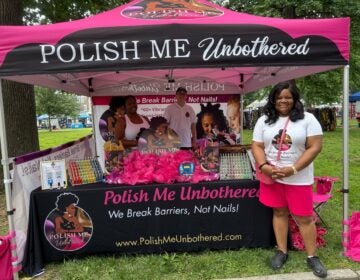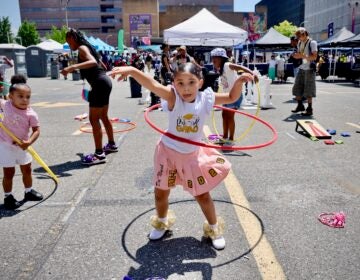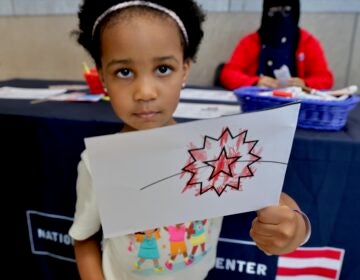Juneteenth parade organizers want to draw as many people as the Mummers
Juneteenth organizers are confident they can attract thousands of more people this Saturday to the new West Philly parade route ending at Malcolm X Park.
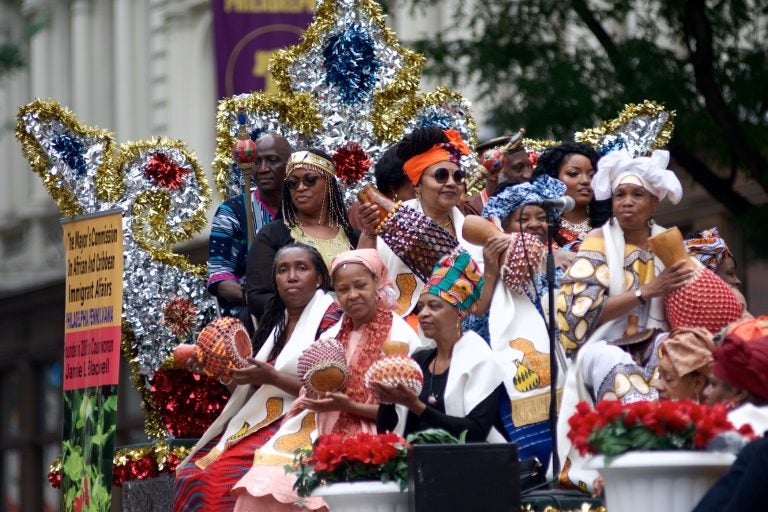
A float travels through Center City during the annual Juneteenth parade. (Bastiaan Slabbers for WHYY)
Organizers of West Philadelphia’s Juneteenth Parade and Festival this Saturday say they want to create an event as well-known and well-attended as the annual Mummers Parade.
That’s an ambitious goal considering about 1,000 people marched in last year’s Juneteenth Parade in Center City before some 5,000 spectators, while tens of thousands of people watch about 10,000 Mummers strut down Broad Street each New Year’s Day.
Still, Juneteenth organizers are confident they can attract thousands of more people this year to their new West Philly parade route, which will end at Malcolm X Park at 52nd and Pine streets.
Organizers report about 2,200 people are marching and expect some 8,000 spectators.
Juneteenth commemorates June 19, 1865, the day slaves in Galveston, Texas first learned they were free — more than two years after President Abraham Lincoln signed the Emancipation Proclamation.
Philadelphia and cities across the country commemorate the day with parades and festivals, which some say can go overlooked — even by some members of the African-American community.
“The commemoration of Juneteenth is not known by many, that includes whites and blacks,” said Gwen Ragsdale, curator and half of the husband-wife team that runs the Lest We Forget Museum of Slavery in Germantown.
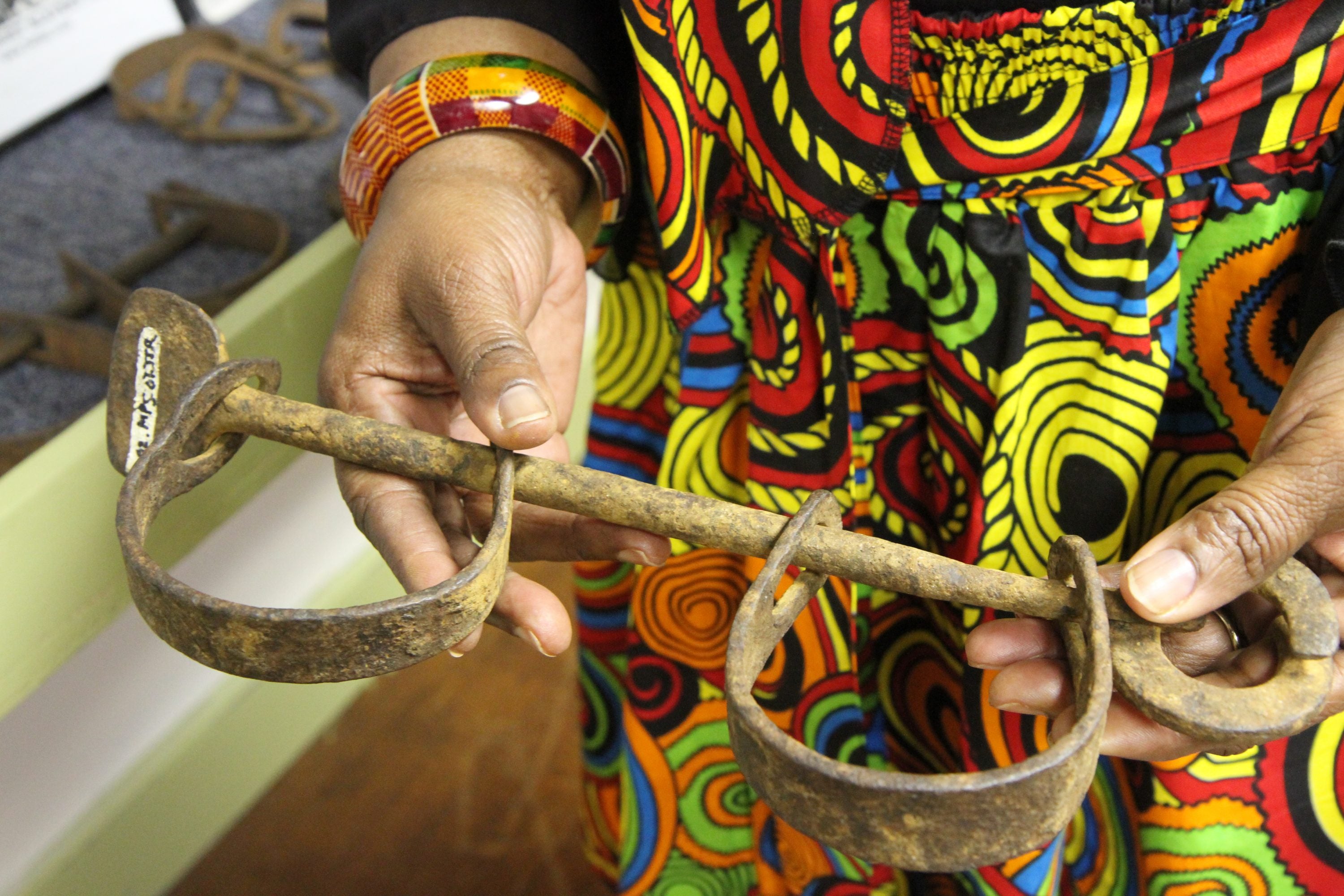
Ali Salahuddin, COO of the festival in West Philly, said there’s a reason for that.
“How did you find out about July the Fourth?” he asked. “Basically, you found out what July the Fourth meant through the school system.”
Juneteenth has been more broadly celebrated in the South and the Southwestern United States, and according to Salahuddin, before the advent of social media, it was harder to spread the word.
The Johnson House, a former stop on the Underground Railroad, has hosted a festival in Germantown for 13 years, showcasing African art and black-owned businesses. Cultural institutions like the African American Museum in Philadelphia have also hosted Juneteenth events and will do so again Wednesday.
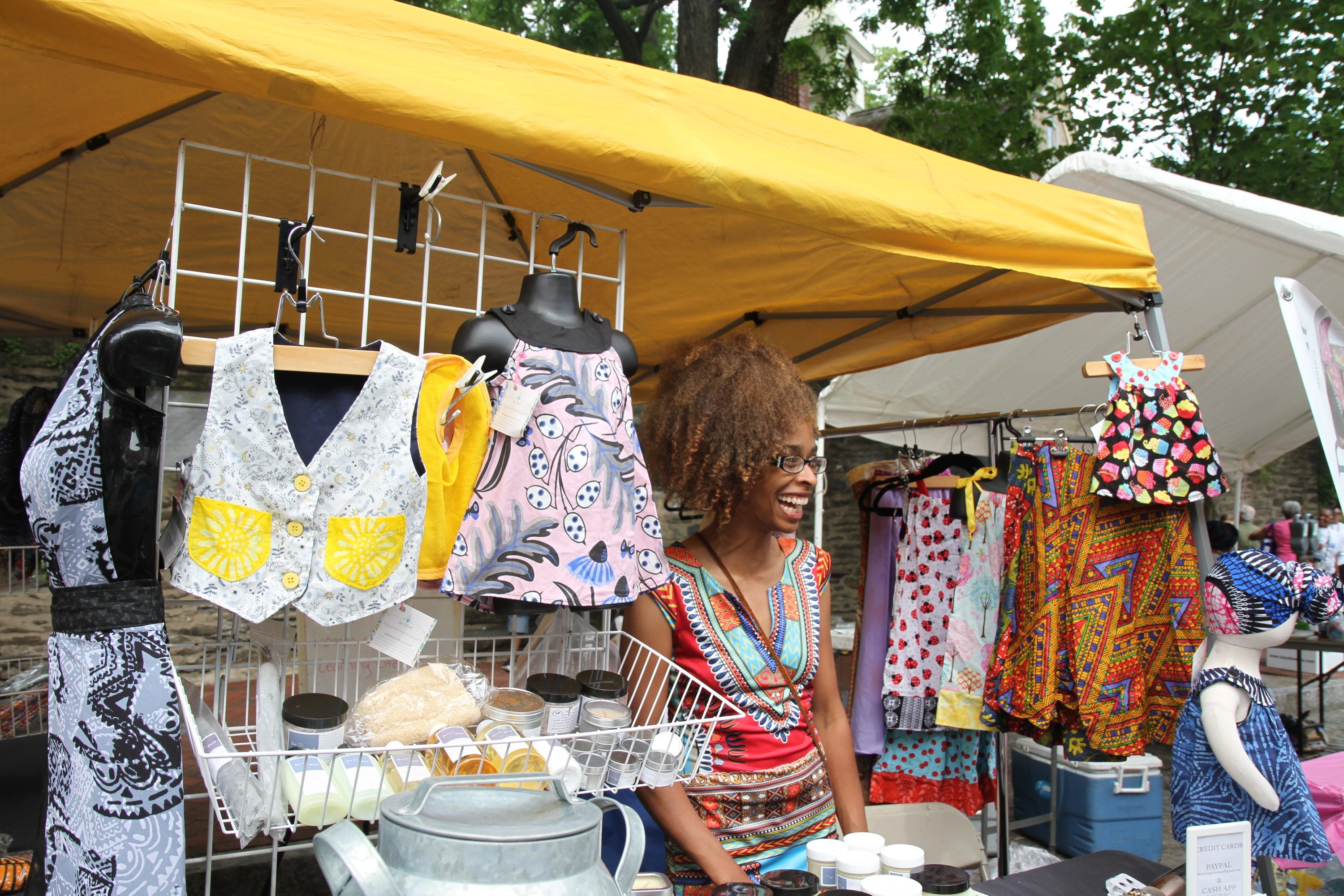
And the word is spreading.
Ada Brooks, who lives in Mt. Airy, said she went to her first Juneteenth Parade in Center City last year.
“An older gentleman, he was about in his 90s, and he told me what Juneteenth actually represented,” Brooks said.
She attended the Johnson House Juneteenth festivities last Saturday and plans on going to the West Philadelphia event, too.
“We need to know where we came from,” she said.
When Brooks goes to the West Philly festival, she might bump into Ragsdale who will have a table with a display of iron shackles stolen people were forced to wear as they were transported into slavery.
These items may sound out-of-place for a festival, but for Ragsdale, displaying the tools of enslavement are an important part of understanding the day slaves in the South heard of their freedom.
“We came on boats, but they were not called the Mayflower and we did not own our own private cabin,” she said.
Still, as much as the parade and festival are about remembering the past, they’re also about looking forward.
“The theme each year is to really highlight positive things, positive achievements which have been made by the community during the past year,” said Salahuddin.
In the early days of Juneteenth, communities marked the day and honored former slaves by learning how to read or building new churches.
Salahuddin and fellow organizers want to bring that spirit closer to African-American communities, which is why they decided to move the parade from Center City to West Philadelphia this year.
Another hope is that drawing thousands of people to the festival’s new home in Malcolm X Park will give the neighborhood an economic boost.
But most importantly, on the 400th anniversary African slaves arrived in Virginia on Dutch ships, Salahuddin wants to send young people a message that they can do anything.
“No matter how dark it looks, no matter how grim it looks, you can do this because your ancestors did this and they had it a lot worse than you had,” he said. “So keep your head up, keep working and you can achieve.”
After a breakfast honoring enslaved ancestors, the parade steps off at noon Saturday, followed by a music festival at 1 p.m.
WHYY is your source for fact-based, in-depth journalism and information. As a nonprofit organization, we rely on financial support from readers like you. Please give today.


